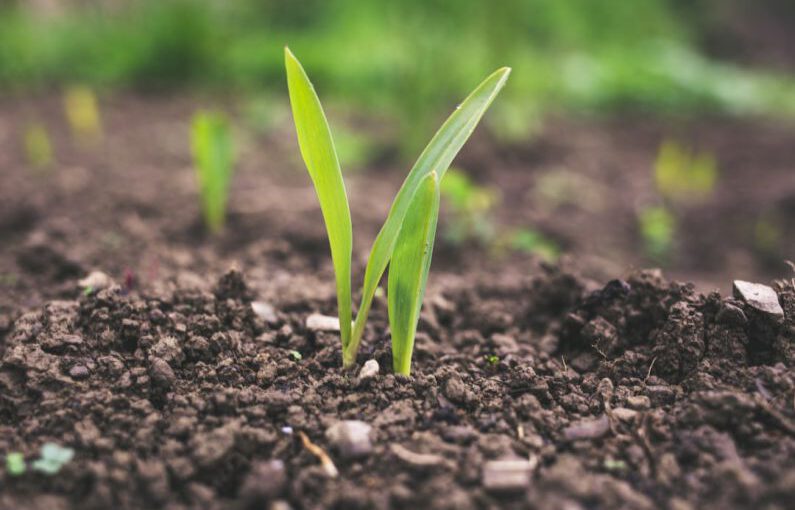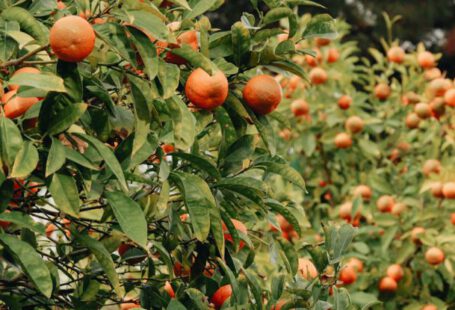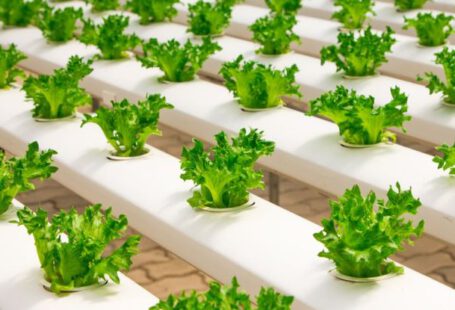Creating a vibrant and flourishing garden starts with the soil. The health of your plants relies heavily on the quality of the soil they are growing in. While chemical fertilizers can provide a quick fix, they often deplete the soil in the long run and harm the environment. By enriching your soil naturally, you can ensure a sustainable and thriving garden that benefits both your plants and the ecosystem. Let’s explore some effective ways to enrich your soil naturally for a healthier garden.
Understanding Your Soil
Before you start amending your soil, it’s essential to understand its composition. Different types of soil have varying levels of nutrients and pH levels, which can affect plant growth. You can conduct a simple soil test to determine the pH level and nutrient content of your soil. This will help you identify any deficiencies and tailor your soil enrichment efforts accordingly.
Composting for Nutrient-Rich Soil
Composting is a fantastic way to enrich your soil naturally while reducing waste. By composting organic matter such as vegetable scraps, yard waste, and coffee grounds, you can create nutrient-rich soil that promotes healthy plant growth. Compost adds essential nutrients to the soil, improves soil structure, and enhances its water retention capacity. To start composting, simply create a compost pile or invest in a compost bin and regularly add organic materials, turning the pile occasionally to promote decomposition.
Mulching for Moisture Retention and Weed Suppression
Mulching is another effective technique for enriching soil naturally. Mulch acts as a protective layer on the soil surface, helping to retain moisture, suppress weeds, and regulate soil temperature. Organic mulches such as straw, wood chips, and leaves break down over time, adding valuable nutrients to the soil. Additionally, as the mulch decomposes, it improves soil structure and encourages beneficial soil organisms. Apply a layer of mulch around your plants to reap the benefits of this simple yet powerful soil enrichment method.
Crop Rotation for Nutrient Diversity
Crop rotation is a traditional agricultural practice that can benefit your garden soil naturally. By alternating the types of crops you grow in a particular area each season, you can prevent nutrient depletion and soil-borne diseases. Different plants have varying nutrient requirements, so rotating crops helps maintain soil fertility and balance. For example, legumes such as peas and beans can fix nitrogen in the soil, while brassicas like cabbage and broccoli help break up compacted soil. Implementing a crop rotation plan in your garden can improve soil health and yield healthier plants.
Companion Planting for Natural Pest Control
Companion planting involves growing different plants together to maximize their benefits and deter pests naturally. Certain plant combinations can improve soil health by attracting beneficial insects, repelling harmful pests, and enhancing nutrient uptake. For instance, planting marigolds alongside tomatoes can repel nematodes, while growing basil near peppers can improve their flavor and growth. By incorporating companion planting strategies in your garden, you can create a harmonious environment that promotes soil enrichment and plant vitality.
Enhancing Soil Biology with Cover Crops
Cover crops are plants grown specifically to improve soil health rather than for harvest. Cover crops help prevent soil erosion, suppress weeds, and add organic matter to the soil when they are tilled under. Legumes such as clover and vetch can fix nitrogen in the soil, while grasses like rye and oats improve soil structure and moisture retention. By incorporating cover crops into your garden rotation, you can enhance soil biology, increase nutrient availability, and promote a healthier ecosystem.
Promoting Biodiversity for a Resilient Garden Ecosystem
Biodiversity is key to creating a resilient and sustainable garden ecosystem. By cultivating a diverse range of plants, you can support beneficial insects, microorganisms, and wildlife that contribute to soil health. Native plants are particularly valuable for attracting pollinators, improving soil structure, and enhancing overall ecosystem stability. Additionally, avoiding chemical pesticides and herbicides can help maintain a healthy balance of organisms in the soil. By promoting biodiversity in your garden, you can enrich the soil naturally and enjoy a thriving and vibrant landscape.
Sustainable Gardening Practices for Long-Term Soil Health
In conclusion, enriching soil naturally is essential for maintaining a healthy and productive garden. By adopting sustainable gardening practices such as composting, mulching, crop rotation, companion planting, cover cropping, and promoting biodiversity, you can improve soil fertility, enhance plant growth, and support a balanced ecosystem. These methods not only benefit your garden but also contribute to environmental sustainability and long-term soil health. Embrace these natural soil enrichment techniques to create a flourishing garden that thrives for years to come.





